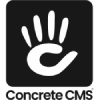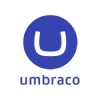16 Top Open Source CMS Systems
An open source content management system (CMS) is a software platform that allows users to create and manage digital content, such as websites, without the need for extensive coding skills. These CMSs are available for free and built by a community of developers who contribute to the platform's code and functionality. Open source CMSs are highly popular and customizable, with a range of themes, plugins, and modules available to add additional functionality and design options.

Concrete CMS is an open source content management system for teams. A website builder with built in tools make editing content easy.
Visit website➔
Open source content management for your Git workflow. Use Decap CMS with any static site generator for a faster and more flexible web project.
Visit website➔
django CMS is the leading enterprise CMS powered by the community, backed by the django CMS Association.
Visit website➔
dotCMS is a Open Source Hybrid CMS — built on leading Java technology. We are the next-generation platform that supports both the flexibility of a headless CMS, with the efficiency of traditional content authoring.
Visit website➔
Drupal is a free and open-source web content management system written in PHP and distributed under the GNU General Public License.
Visit website➔
The world’s most flexible & secure open source CMS. Combining a thriving developer community with best-in-class support, ExpressionEngine is mission control for your website’s content.
Visit website➔
Ghost is a free and open source blogging platform written in JavaScript designed to simplify the process of online publishing for individual bloggers as well as online publications.
Visit website➔
Grav is a Modern, Crazy Fast, Ridiculously Easy and Amazingly Powerful Flat-File CMS.
Visit website➔
Joomla! is mobile-ready and user-friendly way to build your website. Choose from thousands of features and designs. Joomla! is free and open source.
Visit website➔
Monstra is a modern and lightweight Content Management System. It is Easy to install, upgrade and use.
Visit website➔
OpenCart is a free and open-source e-commerce platform that's easy to install and customize. It provides a range of features, including product management, payment processing, and shipping integration.
Visit website➔
Pico is a flat file CMS, this means there is no administration backend and database to deal with. You simply create .md files in the 'content' folder and that becomes a page.
Visit website➔
PrestaShop is an open source e-commerce platform that is available for free, with the option to upgrade to a premium version. The software is licensed under the Open Software License and is built using PHP programming language, with built-in support for the MySQL database management system.
Visit website➔
Publii is the perfect tool for creating beautiful, fast, and secure websites. With its friendly user interface, you'll be able to create SEO and privacy-friendly websites in no time at all.
Visit website➔
PyroCMS is an easy to use, powerful, and modular CMS and development platform built with Laravel 5.
Visit website➔
The Silverstripe CMS is a flexible PHP open source Content Management System that focuses on giving everyone involved in a web project the tools that they need.
Visit website➔
Umbraco is the leading open-source ASP.NET Core CMS. More than 700,000 websites worldwide are powered by our flexible and editor-friendly CMS.
Visit website➔
43% of the web is built on WordPress. More bloggers, small businesses, and Fortune 500 companies use WordPress than all other options combined.
Visit website➔Good to know...
Why do companies often choose an open source CMS?
Companies often choose an open source CMS for several reasons. First, open source CMSs are typically free to use and distribute, making them a cost-effective solution for businesses of all sizes. They also provide a high level of customization, with a large community of developers contributing to the platform's code and functionality. This allows businesses to tailor the CMS to their specific needs and create a unique digital experience for their customers. Additionally, open source CMSs are often more secure than proprietary software, as the community of developers is constantly monitoring and updating the code to address any vulnerabilities. Finally, the flexibility and scalability of open source CMSs make them a popular choice for businesses that want to expand their digital presence and grow their online sales.
What are the drawback of open source?
While there are many benefits to using an open source CMS, there are also some potential drawbacks that businesses should be aware of.
One of the main drawbacks is that open source CMSs can be more complex to set up and customize than proprietary software. This can require more time, resources, and technical expertise to get the system up and running, especially if you want to modify the code.
Another potential issue is that the open source community may not always provide reliable support and documentation, which can make it difficult to troubleshoot issues and make updates to the system. This can be especially problematic for businesses that rely heavily on their online presence and cannot afford extended downtime or issues with the site.
Lastly, while the security of open source CMSs is generally considered to be strong, the possibility of security vulnerabilities does exist, and businesses must take steps to ensure they are regularly updating their system and implementing security best practices to protect their website from potential attacks.
Are there any costs associated with using an open source CMS, and if so, what are they?
While the software itself of most open source CMS platforms is typically free to use, there may be other costs associated with using it for your website. Here are some common costs to consider:
- Hosting costs: You will need to host your website on a server, which may involve a monthly or annual fee.
- Customization costs: If you require custom development work, such as a custom theme or plugin, you may need to hire a developer or agency to do the work for you.
- Support costs: While open source CMS platforms have large communities of users who can help troubleshoot issues, you may need to pay for professional support if you require more advanced assistance.
- Maintenance costs: You will need to regularly maintain your website and keep it up-to-date with the latest security patches and software updates. This may require some technical expertise or the assistance of a developer.
It's important to note that while there may be some costs associated with using an open source CMS, they are often much lower than those associated with proprietary CMS platforms. Additionally, the ability to customize and modify the software as needed can often provide significant cost savings over time.
How frequently are open source CMS platforms updated, and how can I ensure that my website stays up-to-date?
The frequency of updates for open source CMS platforms varies depending on the platform and the community behind it. Generally speaking, popular open source CMS platforms like WordPress, Drupal, and Joomla receive regular updates to fix bugs, enhance functionality, and improve security. These updates can range from minor point releases to major version updates that introduce significant changes to the platform.
To ensure that your website stays up-to-date, it's important to regularly check for and install updates. Many open source CMS platforms offer automatic updates, which can make the process easier. However, it's important to test any updates before installing them on your live website to ensure they don't cause any issues.
Additionally, keeping your website up-to-date involves more than just updating your CMS platform. You will also need to keep your plugins or extensions, themes, and any custom code up-to-date and compatible with the latest version of your CMS. Regularly backing up your website is also important in case any issues arise during the update process.
Overall, staying up-to-date with updates is crucial for ensuring the security and stability of your website. By regularly checking for and installing updates, you can help ensure that your website runs smoothly and remains secure.
How do I choose the right open source CMS for my website?
Choosing the right open source CMS for your website can seem overwhelming with the variety of options available in the market. Here are some key factors to consider when making your decision:
- Your website's requirements: Consider the specific needs of your website, such as the type of content you will be publishing, the level of customization you require, and any specific functionality you need.
- Ease of use: Look for an open source CMS that has an intuitive user interface and a user-friendly backend, making it easy to manage your website without requiring extensive technical knowledge.
- Community support: Consider the size and activity level of the CMS's community. A larger and more active community typically means more support resources, such as forums, documentation, and plugins, which can be helpful when troubleshooting issues or customizing your website.
- Security: Security should be a top priority when choosing an open source CMS. Look for a platform that has a strong security track record and a dedicated team actively working to address any security vulnerabilities that arise.
- Customization options: Determine if the CMS allows for customization through themes and plugins/extensions, and if it offers the ability to modify the codebase if necessary.
- Budget: While the software itself is typically free, there may be other costs associated with using an open source CMS, such as hosting, customization, and support. Determine what costs you are willing to incur and consider which CMS offers the best value for your needs.
Overall, the right open source CMS will depend on your unique needs and preferences. Consider these factors and take the time to research and test out different platforms to find the one that best suits your needs.
Can I customize an open source CMS to suit my specific business needs?
Yes, one of the main advantages of using an open source CMS is that it can be customized to suit your specific business needs. Most open source CMS platforms offer a range of customization options, such as themes, plugins/extensions, and the ability to modify the codebase if necessary.
Themes are pre-built templates that allow you to change the look and feel of your website without requiring any coding knowledge. Many open source CMS platforms offer a wide range of free and paid themes to choose from, or you can hire a developer to create a custom theme for you.
Plugins/extensions are add-ons that allow you to add new features and functionality to your website. Most open source CMS platforms offer a large library of plugins/extensions that can be installed with just a few clicks. You can also hire a developer to create a custom plugin/extension for you if necessary.
If you require more advanced customization, you can modify the codebase of the CMS itself. This requires technical knowledge and should only be attempted by experienced developers. However, the ability to modify the codebase allows for virtually unlimited customization options, making it possible to create a truly unique and customized website.
Overall, open source CMS platforms offer a high degree of flexibility and customization options, making it possible to create a website that meets your specific business needs. Whether you require simple changes to the look and feel of your website or more advanced customization, there are many options available to suit your needs.